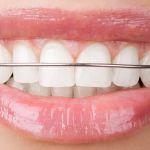Can Stress Contribute to Tooth Decay? Understanding the Connection
- 1. How Stress Affects Oral Health
- 2. The Connection Between Stress and Cavity Formation
- 3. The Effects of Stress on Saliva Production
- 4. Stress-Related Habits That Contribute to Tooth Decay
- 5. Managing Stress for Better Dental Health
- 6. Dental Care Products to Help Protect Your Teeth from Stress
1. How Stress Affects Oral Health
Stress is known to have a wide range of negative effects on the body, but did you know it can also impact your oral health? Chronic stress can lead to poor dental habits and changes in your body that may contribute to tooth decay, gum disease, and other oral health issues. During times of stress, the body releases cortisol, a hormone that can affect the immune system and lead to inflammation, which in turn can affect your gums and teeth.
Moreover, stress often leads to behaviors that put your teeth at risk, such as neglecting regular brushing, grinding your teeth, or consuming unhealthy foods. All these factors can increase your susceptibility to tooth decay, making it crucial to manage stress for the sake of your dental health.
2. The Connection Between Stress and Cavity Formation
Tooth decay, or cavities, develop when bacteria in the mouth feed on sugars and produce acids that erode tooth enamel. Stress can exacerbate this process in several ways. For example, when you're stressed, you might have a tendency to consume more sugary or acidic foods and drinks, which provide fuel for harmful bacteria in your mouth. Additionally, stress can weaken your immune system, making it harder for your body to fight off the bacteria that contribute to cavities.
Furthermore, people who are stressed often neglect their oral hygiene routine, either by skipping brushing or by brushing too aggressively, both of which can lead to an increased buildup of plaque and bacteria on the teeth. This combination of poor diet and lack of oral care creates a perfect storm for cavity development.
3. The Effects of Stress on Saliva Production
Saliva is essential for maintaining a healthy mouth. It helps wash away food particles, neutralize acids, and protect your teeth from decay. When you're stressed, however, your body may reduce saliva production. This condition, known as dry mouth, can make it harder to keep your mouth clean and your teeth protected. Without enough saliva, harmful bacteria can thrive, increasing the risk of cavities, gum disease, and bad breath.
Dry mouth can be exacerbated by stress-related behaviors like breathing through the mouth, caffeine consumption, and certain medications that are often prescribed to help manage anxiety and stress. To prevent dry mouth, it's important to stay hydrated and talk to your dentist about solutions if stress is affecting your saliva production.
4. Stress-Related Habits That Contribute to Tooth Decay
Stress can lead to several habits that directly impact the health of your teeth. Here are some common stress-related behaviors that can contribute to tooth decay:
- Teeth Grinding (Bruxism): Many people grind or clench their teeth unconsciously when stressed. This can wear down tooth enamel and increase the risk of tooth sensitivity and cavities.
- Neglecting Oral Hygiene: Stress can make people forget or skip brushing and flossing, allowing plaque and bacteria to build up on the teeth, leading to decay and gum disease.
- Increased Sugar Consumption: Stress often drives people to comfort food, and sugary snacks or drinks are common choices. These can lead to an increase in harmful bacteria that cause cavities.
- Bad Eating Habits: Stress can disrupt eating patterns, leading to irregular meals and poor nutritional choices that affect your teeth, such as eating more acidic or sticky foods.
Recognizing these habits is the first step to breaking the cycle of stress-related dental issues.
5. Managing Stress for Better Dental Health
Taking steps to reduce stress can not only improve your overall well-being but also benefit your oral health. Here are some effective stress management techniques:
- Exercise: Physical activity helps reduce stress and promotes better overall health, including improved oral health by stimulating saliva production and reducing the risk of dry mouth.
- Meditation and Relaxation: Practices such as mindfulness meditation, deep breathing, and yoga can help calm your mind, reduce stress levels, and lower the risk of stress-related oral health issues.
- Healthy Diet: Eating a balanced diet that includes foods rich in vitamins and minerals, such as calcium and vitamin D, can help maintain healthy teeth and gums, even during stressful times.
- Regular Dental Checkups: Scheduling regular dental visits is crucial for detecting stress-related issues such as bruxism, cavities, and gum disease early before they become more severe.
Incorporating these practices into your daily routine can significantly reduce the impact of stress on your teeth and gums.
6. Dental Care Products to Help Protect Your Teeth from Stress
In addition to managing stress itself, there are various dental products that can help mitigate the effects of stress on your oral health. These include:
- Night Guards: If you grind your teeth at night due to stress, a custom-fitted night guard can protect your teeth from wear and tear and prevent tooth damage.
- Fluoride Rinses: Fluoride mouthwashes can help strengthen tooth enamel and prevent cavities, especially if you're not able to maintain perfect oral hygiene during stressful times.
- Hydrating Mouth Sprays: These sprays can help combat dry mouth caused by stress and keep your mouth moist, reducing the risk of cavities and gum disease.
For recommendations on which products are best for your oral health needs, visit Dentistry Toothtruth, where you can find trusted products and advice tailored to your situation.
Stress can indeed contribute to tooth decay, but with the right strategies in place, you can minimize its impact on your oral health. By managing stress, adopting better habits, and using the right dental care products, you can maintain a healthy smile. If you're interested in learning more about how stress affects your dental health and finding solutions, visit Dentistry Toothtruth for expert tips and recommendations.







 Ernstberger Orthodontics5.0 (326 review)
Ernstberger Orthodontics5.0 (326 review) Lightfoot Center for Laser Periodontics5.0 (69 review)
Lightfoot Center for Laser Periodontics5.0 (69 review) Kanawha City Pediatric Dentistry4.0 (163 review)
Kanawha City Pediatric Dentistry4.0 (163 review) Dr. Dental: Dentistry & Braces4.0 (711 review)
Dr. Dental: Dentistry & Braces4.0 (711 review) North Atlanta Family Dentistry4.0 (482 review)
North Atlanta Family Dentistry4.0 (482 review) Richmond VA Dental Arts4.0 (181 review)
Richmond VA Dental Arts4.0 (181 review) The Importance of Oral Health Education During Pregnancy for a Healthy Pregnancy
The Importance of Oral Health Education During Pregnancy for a Healthy Pregnancy Best Tips for Brushing Your Teeth Properly for Healthy Gums: Essential Techniques for Oral Health
Best Tips for Brushing Your Teeth Properly for Healthy Gums: Essential Techniques for Oral Health Why Skipping Dental Checkups Can Lead to Bigger Oral Health Problems
Why Skipping Dental Checkups Can Lead to Bigger Oral Health Problems Advantages of Porcelain Dental Restorations
Advantages of Porcelain Dental Restorations How Can Diabetes Cause Tooth and Gum Problems? Preventing and Managing Oral Health Issues
How Can Diabetes Cause Tooth and Gum Problems? Preventing and Managing Oral Health Issues Healthy Habits for Promoting Good Oral Health and Hygiene: Tips for a Healthy Smile
Healthy Habits for Promoting Good Oral Health and Hygiene: Tips for a Healthy Smile